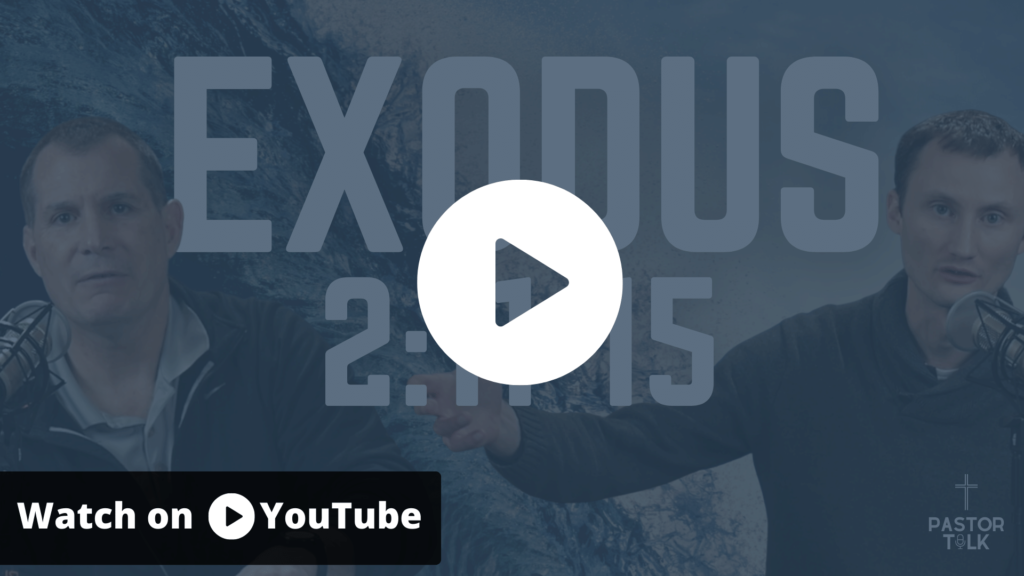
When Moses sees and Egyptian striking a Hebrew, Moses strikes the Egyptian to death. When Moses sees a Hebrew striking another Hebrew, he comes to the life changing realization that is wholly at home with either his kinsfolk or his adoptive family. Moses ends this scene alone, at the edge of a well, with the open question if there is anything, or anyone who will take him in.
Thank you for joining us, we sincerely help that this study encourages you in your understanding of the Bible. Please be sure to share this with anyone who you think might be interested in joining us. If you want to subscribe for future episodes, go to our website pastortalk.co.

Pastor Talk Quick Links:
- Learn more about the Pastor Talk series and view our previous studies at https://pastortalk.co
- Subscribe to get the Pastor Talk episodes via podcast, email and much more! https://pastortalk.co#subscribe
- Questions or ideas? Connect with us! https://pastortalk.co#connect
- Interested in joining us for worship on Sunday at 8:50
